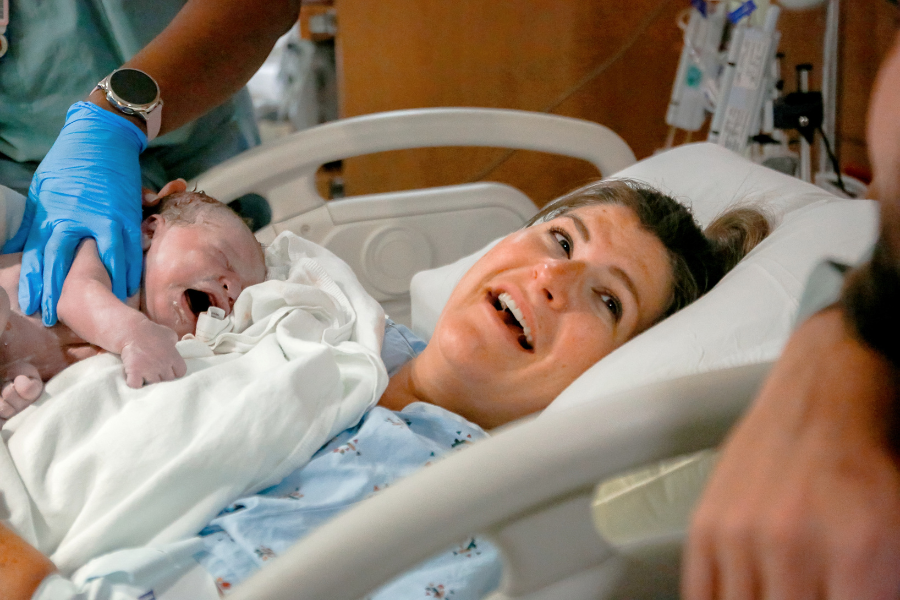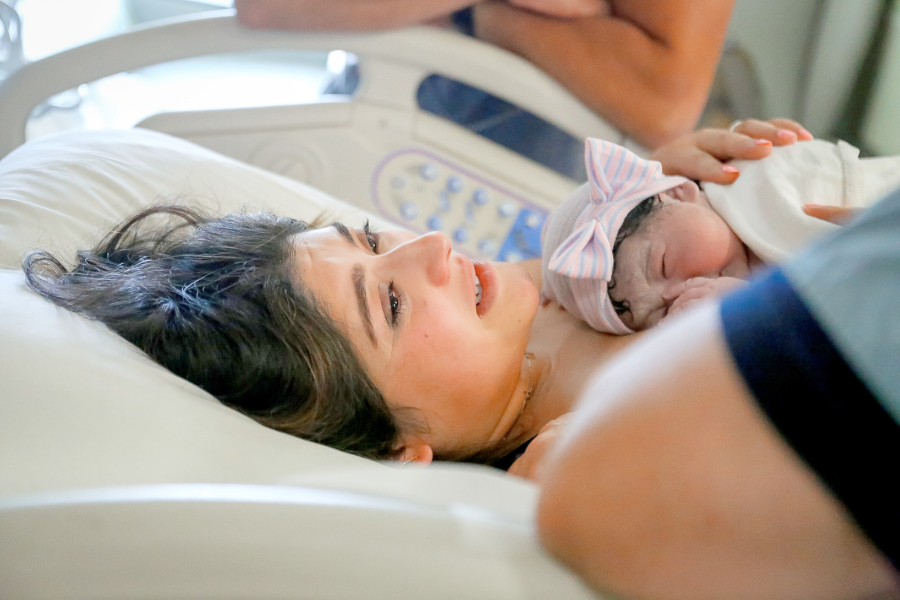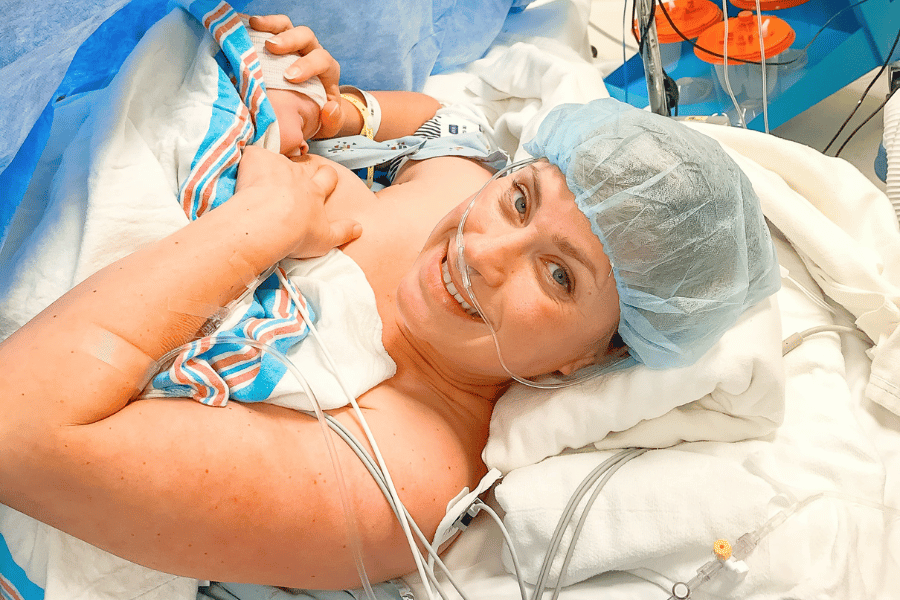Pass the pickles and ice cream, mama! Today we’re going to talk all about those intense, common, and often downright bizarre cravings and aversions that strike during pregnancy. If you’re like an estimated 60% or more of pregnant women, you know that pregnancy food cravings and aversions are serious.
You want that chili and you want it now. And you’re sure if you even take another look at salmon the entire contents of your stomach are coming up.
But what’s the deal with your sudden pregnancy cravings and aversions? Is there some evolutionary reason you suddenly can’t stand the taste of meat? When do pregnancy cravings and aversions usually start? And most importantly, when are your pregnancy cravings and aversions a cause for concern?
Let’s get to the bottom of all these questions, and more, so you can understand just what is going on with this whacky pregnancy symptom.
- Are pregnancy cravings real?
- When do pregnancy cravings and aversions start?
- What causes food cravings and aversions during pregnancy?
- Most common pregnancy cravings
- Most common food aversions during pregnancy
- Cravings you should tell your doctor about
- Remember: pregnancy cravings and aversions are totally normal
Follow @mommy.labornurse on Instagram to join our community of over 650k for education, tips, and solidarity on all things pregnancy, birth, and postpartum!
Are pregnancy cravings real?
Ask most pregnant women, and their answer will be yes. In fact, studies show that somewhere between 50-90% of all pregnant women experience pregnancy cravings (source). It’s difficult to know if these are psychological or physiological. But they are definitely happening to the majority of pregnant women.
Cravings that women experience during pregnancy are often quite different than a craving when you’re not pregnant. Someone who’s not pregnant might wish for a certain meal or dessert.
But in pregnancy, it’s more like: ‘I need this now or I will burst into tears’, or ‘I literally cannot eat anything BUT this thing I’m craving right now or I’ll puke.’
Yes. They really do feel that extreme and dramatic.
In recent years there has been a fair amount of research done on the topic of pregnancy cravings. Mostly, these studies aim to identify predictors of excessive weight gain during pregnancy and figure out ways to encourage better nutrition and healthier weight gain in pregnant women (source).
Research can’t determine for sure how “real” they are in a physiological sense, but at the very least, the psychological aspect of pregnancy cravings is very real.
When do pregnancy cravings and aversions start?
Food cravings and aversions during pregnancy usually start at the end of the first trimester and peak during the second trimester. As your due date approaches, you may notice a decrease in aversions and cravings completely.
This study found that 76% of women experience a food craving by week 13 and the frequency and intensity peaks during the second trimester then gradually declines.
Food aversions come on slightly earlier in the first trimester but often may disappear early in the second trimester. This is because food aversions are largely associated with nausea and morning sickness which dissipates for most women by week 14.
An unlucky few will have nausea and aversions until the end of their second trimester, or worse, for their entire pregnancy.

What causes food cravings and aversions during pregnancy?
Interestingly, researchers aren’t totally sure what the root cause of cravings and aversions during pregnancy is, but it’s another symptom that is probably largely due to pregnancy hormones. Here are the leading thoughts and hypotheses that might explain why these cravings and aversions occur.
Hormones
It’s no secret that most pregnancy symptoms are rooted in the huge fluctuation in hormones that occurs during pregnancy. Similarly to the way that many women crave certain foods before their period, pregnant mamas might crave similar foods early in their pregnancies.
According to this article, the hormone neuropeptide Y (NPY), which is produced in the hypothalamus, is produced at higher rates in pregnant women and is often responsible for sending hunger and craving signals to the brain.
Nutritional needs or symptom stoppers
In the past, many people thought that pregnancy aversions and cravings were there to fulfill nutritional deficits. Does ice cream really fulfill nutritional needs for your body? Probably not. And aversions to things like alcohol and caffeine are working to protect your growing baby during pregnancy.
Additionally, you might crave things that will help alleviate some of your other symptoms, thus protecting you and your baby.
For example, many women crave bananas, oatmeal, or toast. In other words, plain and bland foods that won’t upset your stomach.
Cultural factors and comfort
Let’s face it, pregnancy is pretty downright uncomfortable for most of us. For this reason, some of the pregnancy cravings we experience are in search of comfort. That’s why they call certain things “comfort foods” after all. Many pregnant women report cravings for foods from their childhood, likely because they provide a comfortable, nostalgic feeling.
There is also a cultural aspect to the cravings that pregnant women report. The cravings of pregnant mamas in the US are going to be far different than those in Asia or Europe. This cultural aspect of cravings also ties into feelings of comfort within our culture’s food and drinks.
Change in sensory perception
Lastly, we can’t talk about pregnancy food cravings, and especially aversions, without mentioning the often extreme changes in sensory perception that occur during the first and second trimesters.
Most pregnant women report an extreme change in their sense of smell. This sudden super olfactory sense can send you running from foods you used to love.
Other women report a change in their taste buds and a heightened sensitivity to certain ingredients and tastes.
Most common pregnancy cravings
Because of the cultural aspect of pregnancy cravings, the most common cravings during pregnancy will vary around the world. Usually, people categorize pregnancy cravings as being sweet or salty.
Some old wives’ tales even say that the type of cravings you’re having will predict if you’ve got a boy or girl in there.
Here are some of the most common cravings among pregnant mamas here in the US:
- Chocolate
- Chips or other salty, crunchy snacks
- Spicy food
- Fruit in general
- Lemon specifically (many say it helps their morning sickness!)
- Ice cream
- Red meat
- Pickles
- Cheese
- Carbs (bread, potatoes, pasta, waffles, etc.)
- Fast food
Most common food aversions during pregnancy
Food aversions during pregnancy can be really extreme. Sometimes just the sight, smell, or even thought of certain foods can send a mama running to the toilet.
Because of the link between taste and smell, the foods most commonly avoided during pregnancy usually have a strong odor or aftertaste.
A heightened sensitivity to taste can leave you avoiding certain dishes with even trace amounts of an ingredient that’s causing your aversion.
So what are some of the most common food aversions in pregnancy?
- Meat
- Eggs
- Onions
- Garlic
- Coffee and tea
- Spicy foods
Cravings you should tell your doctor about
Most food-related cravings aren’t anything you need to worry about. As long as you have control over them and you’re handling the more ‘unhealthy’ cravings within reason, your doctor doesn’t really need to know about them.
However, anytime you are craving nonfood items it’s very important to discuss this with your doctor. Craving items like dirt, soap, glue, ashes, and in some cases even ice can be a sign of pica. Pica can be a dangerous condition and is often caused by nutritional deficiencies. Pica is also often associated with certain mental health disorders like OCD and Schizophrenia. (source)
Lastly, if you are experiencing cravings for alcohol, drugs, or even cigarettes while pregnant, definitely discuss this with your provider.
They will be able to provide advice and support to overcome these cravings/addictions in order to keep you and baby healthy during your pregnancy.
Remember: pregnancy cravings and aversions are totally normal
Aside from extreme cases (like pica), your pregnancy cravings and aversions are considered a totally normal part of growing a baby. Your baby will get what they need from your nutrient stores and your prenatal vitamin will pick up a lot of the slack when all you can eat is bread.
Try to keep your less healthy cravings within reason, or look for similar yet healthier ways to satisfy the need. For example:
- A fruit smoothie can take the place of a milkshake
- Yogurt with honey and fruit (might) work instead of an ice cream sundae
- Salty homemade kale chips or sweet potato fries may replace a craving for potato chips
When you are feeling well, focus on eating a healthy diet with adequate nutrition to promote a healthy weight gain for your body.
But don’t sweat it if you eat an extra donut every once in a while either 🙂





